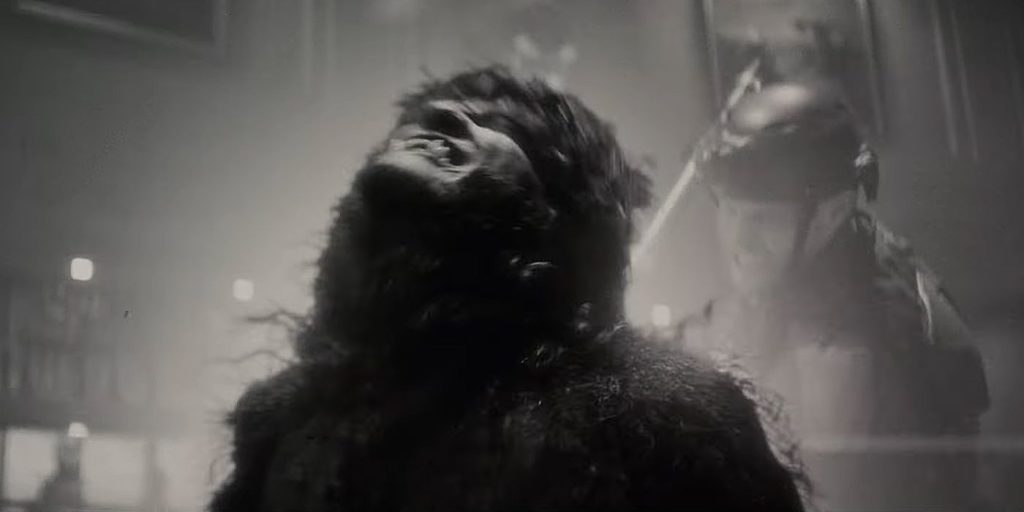Walk. Ride. Rodeo. Reveals Amberley Snyder's Success
Amberley Snyder, a young woman whose injury leaves her with a disability, shows viewers that her handicapped state won't stop her from competition.
Incluvie Foundation Gala - Learn More


Werewolf By Night is a 2022 action, fantasy, and horror movie produced by Marvel Studios. There are two versions of this Marvel movie: the original in black and white, and the colored version.
The central themes of this film deal with monsters, the supernatural, wickedness, and the Bloodstone. As foreshadowed by the title, Werewolf By Night, there is a major werewolf transformation in the dark of the night because of the Bloodstone’s magic. The original version of this movie emphasizes the spooky vibes; the lack of color in the film fits well, with the only shade of the color being the red found in the Bloodstone.
In the beginning, the monster hunters gather at the foreboding Bloodstone Temple following the death of Ulysses Bloodstone, who was described as their leader, friend, and lover without equal. The coffin opens, with a ghostly figure of the deceased leader, Ulysses. Whoever slays the monster successfully will take possession of the Bloodstone and become leader. The Bloodstone symbolizes the power of the supernatural. Additionally, it foreshadows the powerful relic and danger ahead.

In the gripping narrative of “Werewolf By Night,” a fierce battle ensues among the monster hunters, all vying for the esteemed title of Bloodstone’s sole possessor, as only one can reign supreme. Tension hangs palpably in the air as the hunters strain to hear the ominous snarls of the lurking monster, intensifying the suspense that grips the viewers. Astute observers note the gradual weakening of the creature’s malevolent power, a direct consequence of the subtle influence exerted by the Bloodstone, as it gradually siphons the beast’s strength.
The imposing door, an emblematic barrier, visibly obstructs any potential escape routes, adding to the apprehensive atmosphere that envelops this intense showdown.
Laura Donnelly’s portrayal of Elsa Bloodstone, the central female protagonist in the story, is notable. Her shared last name, “Bloodstone,” offers a subtle clue to the audience about her familial ties, hinting at her status as Ulysses Bloodstone’s daughter. Elsa’s character grapples with a desire to forge her own path, made complex by the intricacies of her family life. Her remarkable combat skills and background as a stunt performer enable her to adeptly fend off the attacks of her adversaries.
A startling revelation unfolds before the audience, exposing the unsettling truth that one of the ostensible monster hunters is, in fact, a fiend in disguise, a profound betrayal of trust. The Bloodstone, reacting to this masquerading monstrosity, recoils and rejects it, unmasking the transformation from human to a fearsome werewolf.
As the climax approaches, Elsa succeeds in securing the Bloodstone, and an evocative transformation occurs. The monochromatic world gradually blossoms into a vibrant display of colors, symbolizing the transition from the ominous night to the welcoming embrace of day. The film’s conclusion paints a serene and ordinary day, with some oblivious to the nocturnal events that transpired.
In this cinematic gem, viewers witness a refreshing and inclusive representation of people of color and women. The original version’s color palette consisted solely of black, white, and red, slowly blossoming into full color as the story culminated. In the colored rendition, the scenes are awash with a rich spectrum of hues throughout, while the conclusion retains its vivid tapestry, unaltered by the transition.
Related lists created by the same author
Amberley Snyder, a young woman whose injury leaves her with a disability, shows viewers that her handicapped state won't stop her from competition.
Related diversity category
Joel Coen has gone solo to create perhaps the greatest version of Shakespeare's 'Macbeth' since Shakespeare himself.
Related movie/TV/List/Topic
'Ms. Davis’ Close Friend' will make you think about the meaning of death and what it means to be alive, and if there’s really a race to be run with one's inevitable demise.